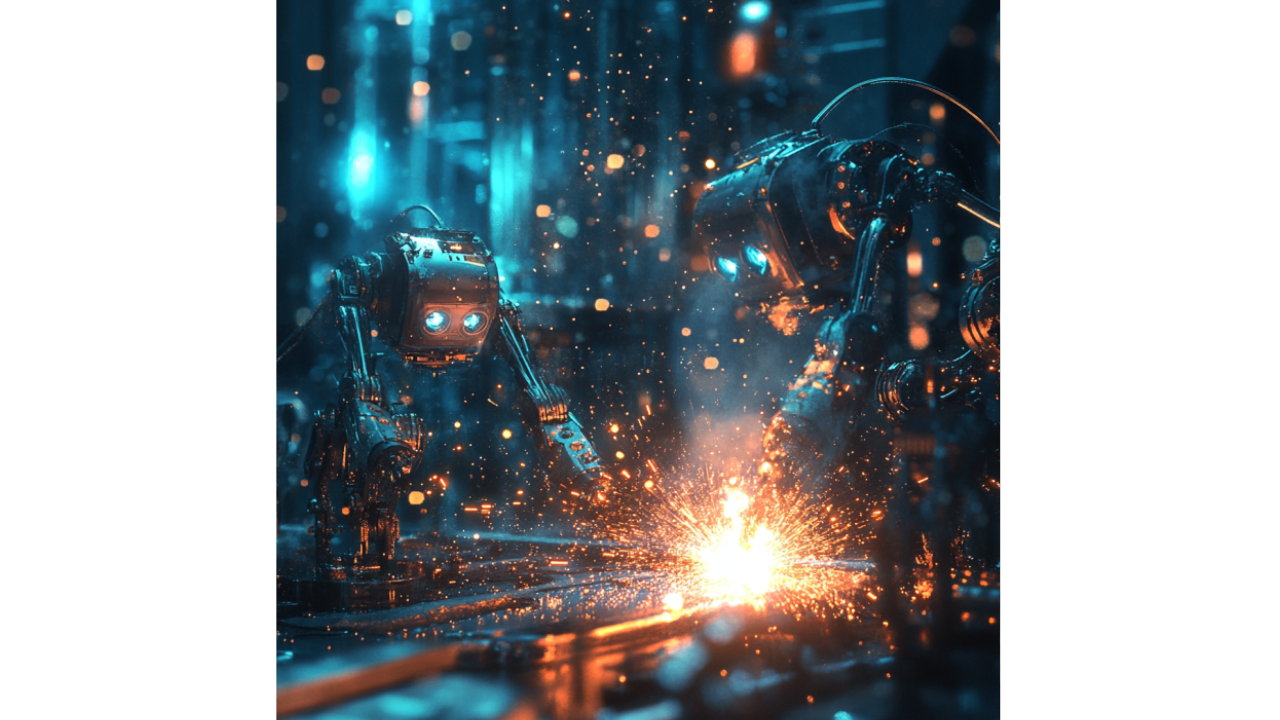AGI - Apple's Reality Check on Silicon Valley's Favorite Delusion
Here's a fun party trick: next time someone breathlessly tells you we're "months away from AGI," ask them to explain why ChatGPT cited six entirely...
4 min read
 Writing Team
:
Aug 5, 2025 8:00:00 AM
Writing Team
:
Aug 5, 2025 8:00:00 AM

Nothing screams "we're screwed" quite like a CEO telling employees in an all-hands meeting that the company "must" and "will" win in AI after acknowledging they've fallen catastrophically behind. Tim Cook's recent promise that Apple will dominate AI is giving off serious "Mission Accomplished" banner energy—bold proclamations masking a strategic disaster years in the making.
Cook says AI is as seismic as the internet or the smartphone, and Apple "must" catch up fast. The problem? Everyone else had this revelation about three years ago, and they didn't waste time building $3,500 ski goggles while ChatGPT was changing the world.
Let's start with the most embarrassing metric: Apple on Friday announced that it is delaying the features that would supercharge Siri with the ability to take action inside other apps until next year. That feature was expected to be released this spring. We're not talking about cutting-edge research here—we're talking about basic functionality that Google Assistant was doing in 2018.
Siri was supposed to be the future. It was the first mainstream voice assistant, launched all the way back in 2011. But more than a decade later, it's the punchline in a conversation that now includes ChatGPT, Alexa, Claude, and Gemini. Think about that: Apple had a 13-year head start and somehow managed to lose the AI race so thoroughly that their voice assistant can't compete with chatbots that didn't exist two years ago.
The timeline tells the whole story. Apple reportedly aims to bring an artificial intelligence (AI)-powered upgrade of its Siri voice assistant to market in spring 2026, after facing delays and failing to meet its original goal of fall 2024. They've now missed their deadline twice, pushing a promised 2024 launch to 2025, then to 2026. At this rate, we'll have artificial general intelligence before Apple figures out how to make Siri set a reminder without screwing it up.
Apple's response to this crisis? Throw money at it. Lots of money. Apple today announced plans to spend and invest more than $500 billion in the U.S. over the next four years. They're building a 250,000-square-foot manufacturing facility in Houston by 2026 to manufacture AI servers, because apparently the solution to being late to AI is building your own expensive infrastructure from scratch.
Here's the thing about AI infrastructure: it's not the bottleneck anymore. To support advanced features of Apple Intelligence with larger foundation models, we created Private Cloud Compute (PCC), a groundbreaking cloud intelligence system designed specifically for private AI processing. This sounds impressive until you realize that OpenAI, Anthropic, and Google already have working AI systems serving millions of users daily using existing cloud infrastructure.
Apple is essentially saying, "We know we're three years behind on the software, but look at this shiny new hardware we're building!" It's like showing up to a Formula 1 race on foot and announcing you're going to build your own racetrack.
The real problem isn't technical—it's organizational. Some within Apple's AI division believe that work on the features could be scrapped altogether, and that Apple may have to rebuild the functions from scratch. When your own engineers think you should throw away years of work and start over, that's not a technical challenge—that's a management failure.
Even more damning: According to today's report, Apple employees are "questioning" whether Apple CEO Tim Cook or the company's board should "take action to change the leadership of the AI group." When your AI team is openly questioning leadership during an AI crisis, you've got bigger problems than delayed features.
Apple has held talks with Perplexity
and Mistral about a potential major AI acquisition, and the company has also discussed using technology from OpenAI or Anthropic for an LLM-based version of Siri. Translation: Apple is so far behind that they're considering buying their way into relevance, which is exactly what companies do when they've missed the innovation window entirely.
Apple's obsession with privacy
—admirable in principle—has become a strategic straitjacket in the AI era. While competitors were hoovering up user data to train increasingly powerful models, Apple was building moats around user information. PCC uses custom servers built by Apple around its M-series chips, "a hardened supply chain for PCC hardware," and a new operating system that mixes elements of MacOS and iOS and was designed specifically for AI queries.
This is engineering excellence applied to a fundamentally flawed strategy. AI models get better with more data and more compute. Apple's approach gives them less data (because privacy) and more expensive compute (because custom everything). They're playing chess while everyone else is playing speed chess, and wondering why they keep losing.
Apple has quietly intensified its efforts in artificial intelligence, acquiring seven companies in 2025. CEO Tim Cook revealed the news during a recent CNBC interview following the company's quarterly earnings call. Seven acquisitions in one year? That's not a growth strategy—that's panic buying.
When asked about larger acquisitions, Cook said they're "open to M&A that accelerates our roadmap." This is code for "we're shopping for someone else's AI homework because we didn't do ours." The problem with acquisition-driven AI strategies is that the best AI talent doesn't want to be acquired—they want to build the next OpenAI or Anthropic.
Apple's biggest advantage—their integrated ecosystem—has become their biggest weakness in AI. The new capabilities will include better understanding of a user's personal context, on-screen awareness, and deeper per-app controls. This sounds compelling until you realize that everyone else's AI can already do this across any device, any platform, anywhere.
While Apple is rebuilding Siri to work better with Apple Mail and Apple Messages, OpenAI's ChatGPT works with everything. While Apple is designing custom chips for their custom servers to run their custom AI models, Anthropic's Claude runs everywhere and integrates with everything.
Apple's walled garden strategy was brilliant for hardware differentiation. For AI, it's a self-imposed handicap.
Bottom line: Apple's $500 billion AI investment isn't a strategy—it's an admission of strategic failure. When you're this late to a platform shift this fundamental, money can't buy you time, and infrastructure can't fix innovation gaps.
The harsh reality? By the time Apple's rebuilt Siri launches in 2026, the AI conversation will have moved on entirely. They'll be launching a voice assistant into a world that's already using AI agents, multimodal AI, and technologies we haven't even imagined yet.
Tim Cook says Apple "must" win in AI.
The truth is, they already lost. The question now is whether they can build a profitable second-place strategy before the shareholders revolt.
Need AI strategy that actually works instead of expensive catch-up plans? Winsome Marketing's growth experts help companies implement AI solutions that drive real results today—not in 2026. Let's build your competitive advantage while others are still rebuilding their basics.

Here's a fun party trick: next time someone breathlessly tells you we're "months away from AGI," ask them to explain why ChatGPT cited six entirely...
.png)
John Sculley—the man who ousted Steve Jobs from Apple in 1985 before being ousted himself in 1993—has thoughts about his former employer's...

Apple researchers published a study on DarkDiff, an AI model that dramatically improves extremely dark photos by integrating diffusion-based...